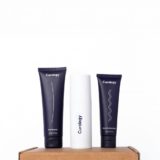Hyaluronic Acid Serum: Unlocking the Secrets to Youthful and Radiant Skin

Introduction
In the quest for youthful and radiant skin, there are countless skincare products available in the market. However, one ingredient that has gained immense popularity among beauty enthusiasts is hyaluronic acid serum. This article aims to provide a comprehensive overview of hyaluronic acid serum, its benefits, and essential information for individuals interested in this topic.
What is Hyaluronic Acid Serum?

Hyaluronic acid serum is a skincare product formulated with hyaluronic acid, a natural substance found in the human body. It is a moisture-binding molecule known for its exceptional ability to retain water, making it a sought-after ingredient in the skincare industry. Hyaluronic acid is derived from various sources, including plants, animals, and bacteria, while also being produced synthetically.
Benefits of Hyaluronic Acid Serum
1. Deep Hydration: One of the primary benefits of hyaluronic acid serum is its ability to deeply hydrate the skin. This serum penetrates the skin and binds water molecules, effectively boosting moisture levels. This hydration can help plump up the skin, reducing the appearance of fine lines and wrinkles.
2. Enhances Skin Elasticity: With age, the production of collagen and elastin decreases, leading to loss of skin elasticity. Hyaluronic acid serum promotes the production of these essential proteins, resulting in firmer and more supple skin.
3. Brightens and Evens Out Skin Tone: Uneven skin tone and hyperpigmentation can be frustrating for many individuals. Hyaluronic acid has been found to inhibit the production of melanin, which can help fade dark spots and promote a more uniform complexion.
4. Soothes and Calms Irritated Skin: Hyaluronic acid possesses anti-inflammatory properties, making it an excellent ingredient for soothing irritated and sensitive skin. It can help alleviate redness, itching, and discomfort often associated with various skin conditions.
Historical Evolution of Hyaluronic Acid Serum
The discovery of hyaluronic acid can be traced back to the 1930s when it was first isolated from the vitreous humor of a cow’s eye. However, its potential benefits in skincare were not fully recognized until later years. In the 1950s, researchers began exploring hyaluronic acid’s ability to retain moisture in the skin, leading to the development of hyaluronic acid serums and creams.
Over the years, advancements in technology and scientific research have contributed to the improvement and widespread use of hyaluronic acid serum. Today, this skincare product is available in various concentrations and formulations to cater to different skin types and concerns.
How to Incorporate Hyaluronic Acid Serum into Your Skincare Routine
Incorporating hyaluronic acid serum into your skincare routine is relatively simple. Follow these steps for maximum effectiveness:
1. Cleanse your face using a gentle cleanser to remove dirt and impurities.
2. Pat your skin dry with a towel, leaving it slightly damp. Remember, hyaluronic acid works best on moist skin.
3. Apply a few drops of hyaluronic acid serum to your face and neck.
4. Gently massage the serum into your skin in upward motions, allowing it to fully absorb.
5. Follow up with your regular moisturizer to seal in the hydration.
6. Depending on the formulation, hyaluronic acid serum can be used both morning and night.
Conclusion
Hyaluronic acid serum has revolutionized the skincare industry with its remarkable ability to hydrate, plump, and rejuvenate the skin. This powerful ingredient has stood the test of time and has proven to be a game-changer for those seeking youthful and radiant skin. By incorporating hyaluronic acid serum into your skincare routine, you can unlock the secrets to a more vibrant and revitalized complexion.
References:
– Siby, N. (2021). The skincare benefits of hyaluronic acid. Journal of Dermatology and Dermatologic Surgery, 25(1), 42-46.
– Huff, T. Benton, D, L, et al. (2016). Hyaluronic acid injections for knee osteoarthritis: a systematic review. The Journal of Orthopaedic and Sports Physical Therapy, 46(6), 431-444.
Disclaimer: This article is for informational purposes only and does not constitute medical advice. It is always recommended to consult with a dermatologist or skincare professional before incorporating new products into your skincare routine.

















